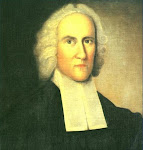News item: Vanderbilt University, which was founded by Methodists in the 1870’s as a Christian institution of higher education, earlier this year informed Christian groups on campus that they must comply absolutely with the school’s non-discrimination policy, which means they must allow atheists or students involved openly in serious sin to be candidates for their leadership, or be banned from campus.
News item: Ron Brown, an assistant football coach at the University of Nebraska, has spoken out publicly on the Bible’s condemnation of homosexual activity as sin. In response a member of the Lincoln, Nebraska, Board of Education wrote to the chancellor of the university demanding that it fire Coach Brown.
News item: The University of Illinois in 2010 terminated the contract of adjunct professor Kenneth Howell (whom the university later reinstated) because in a class on Roman Catholic doctrine, he set forth the Catholic Church’s historical teaching on homosexual acts as sin.
What in the world is going on in the United States of America? We could multiply the three news stories cited above many times over, because we read more and more of open hostility toward public advocacy by Christians of historical Christian moral and doctrinal teaching, especially in our universities. Without being paranoid or practicing fear-mongering, we may rightly ask what the source is of this increasing hostility toward historic Christianity.
Dr. D.A. Carson, research professor of New Testament at Trinity Evangelical Divinity School, has put his finger on one of the sources of this hostility in his wonderful new book The Intolerance of Tolerance (Grand Rapids: Eerdmans, 2012). In the book Dr. Carson helpfully distinguishes between what he calls “old tolerance” versus “new tolerance.” The “old tolerance” flowed from the religious and free speech rights set forth in the First Amendment to the U.S. Constitution. Dr. Carson also believes the “old tolerance” flows from the character of God, who exercises amazing tolerance and forbearance toward sinners (Romans 3:25; Acts 17:30; Exodus 34:6), yet who at the same time insists that there is one and only one way to salvation (John 14:6; Acts 4:12), and that one day he will judge all people (Romans 2:16; Revelations 20:7-10; etc.). The “old tolerance” held there is absolute truth, and those who sincerely believe they have access to that absolute truth should defend that truth vigorously and freely in the public square. But where one person disagrees with another person about the content of absolute truth, each person should listen to the other person respectfully, and each person should defend the other person’s legal and moral right to express freely his or her views in public. (The only exception would be where a person in his speech advocates violence or other conduct that is dangerous to human health, society, or human life.)
In religious matters the “old tolerance” said that while I might disagree with the claims to truth made by other religions, I must respect the practitioners of those other religions, and I must defend their right to advocate the ideas of their religion in the public square.
The “new tolerance” is very different. The “new tolerance” begins with the belief there is no absolute truth. (I have never heard anyone who claims there is no absolute truth explain to me adequately why the statement, “There is no absolute truth,” is not itself a statement of absolute truth!) The “new tolerance” also says that if there are positions it considers intolerant, then people who advocate those positions should not have the right to advocate those positions in the public square. In other words, the one view that no one is allowed to hold is intolerance, which intolerance the “new tolerance” redefines as “any questioning or contradicting the view that all opinions are equal in value, that all worldviews have equal worth, that all stances are equally valid” (Carson, p. 12).
You can see from this discussion just how radically different the “new tolerance” is from the “old tolerance,” and this distinction helps us make sense of the increasing number of headlines in which America’s cultural elites single out Christian doctrine and moral teaching as (in its view) intolerant and thus liable to censoring. It turns out the “new tolerance” is very tolerant when it comes to almost everything but historical Christianity, toward which the “new tolerance” is in fact rabidly intolerant (and thus the title to Dr. Carson’s book).
How should Christians live in a society in which the “new tolerance” dictates increasing intolerance of historic Christian doctrine and moral teaching? The temptation for the church, of course, is to try to get along in society and avoid suffering by watering down biblical teaching that is offensive to our cultural elite. Compromising on biblical truth is not the course, however, advocated by the Lord Jesus Christ, who reminded Christians that because the world opposed and persecuted him because of his truth claims, it will also oppose and persecute us his disciples when we assert those same truth claims (e.g., John 15:20; 16:33). Dr. Carson rightly notes that in a world of the “new tolerance,” Christians must persevere courageously in confronting the world—in love and humility—with the absolute claims of the gospel. However, we must also be ready to suffer persecution for the cause of the gospel, to which the “new tolerance” is opposed, all the while rejoicing that God would count us worthy to suffer for the name of Jesus (Acts 5:41).
May Almighty God grant his church in America the courage and love we need to live in these difficult days of the “new tolerance.”

No comments:
Post a Comment